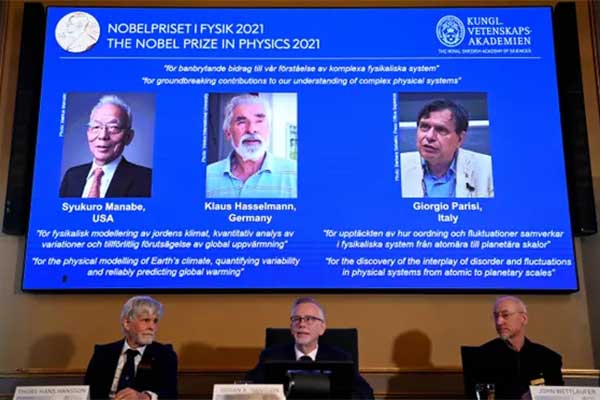Three scientists Dr. Syukuro Manabe, Dr. Klaus Hasselmann and Dr. Giorgio Parisi, have been awarded the Nobel prize in physics for their work on complex physical systems including how humanity influences the Earth’s climate.
Their models and explanations have helped immensely as scientists seek to understand climate change and anticipate its risks.
Half of the award was given to Dr. Syukuro Manabe and Dr. Klaus Hasselmann as a pair, for their physical modelling of the climate, quantifying variability and reliably predicting global heating.
Manabe, a senior meteorologist at Princeton University in the U.S., demonstrated how increased levels of carbon dioxide (CO2) in the atmosphere could increase the Earth’s temperature and, in the 1960s, led to the development of physical models of the climate.
A decade later, Hasselmann created a computer model that linked together weather and climate.
The climate models that have built on the winners’ research form a crucial part of the evidence on which leaders at COP26 will base their decisions.
Hasselmann’s work helped to explain why climate models can be reliable despite the seemingly chaotic nature of the weather. He also worked on ways to look for specific signs of human influence on the climate.
Manabe told reporters that he believed his award reflected the recognition of the importance of climate change by the Royal Swedish Academy of Sciences, which hands out the prize.
The third winner of the physics prize, Dr. Giorgio Parisi, said climate change is a huge threat to humanity and added that it is very important for governments to act as quickly as possible.
Parisi is credited for discovering the hidden rules behind seemingly random movements and swirls in gases or liquids in the early 1980s.
“The discoveries being recognized this year demonstrate that our knowledge about the climate rests on a solid scientific foundation, based on a rigorous analysis of observations,” said Thors Hans Hansson, chair of the Nobel Committee for Physics.











Comments